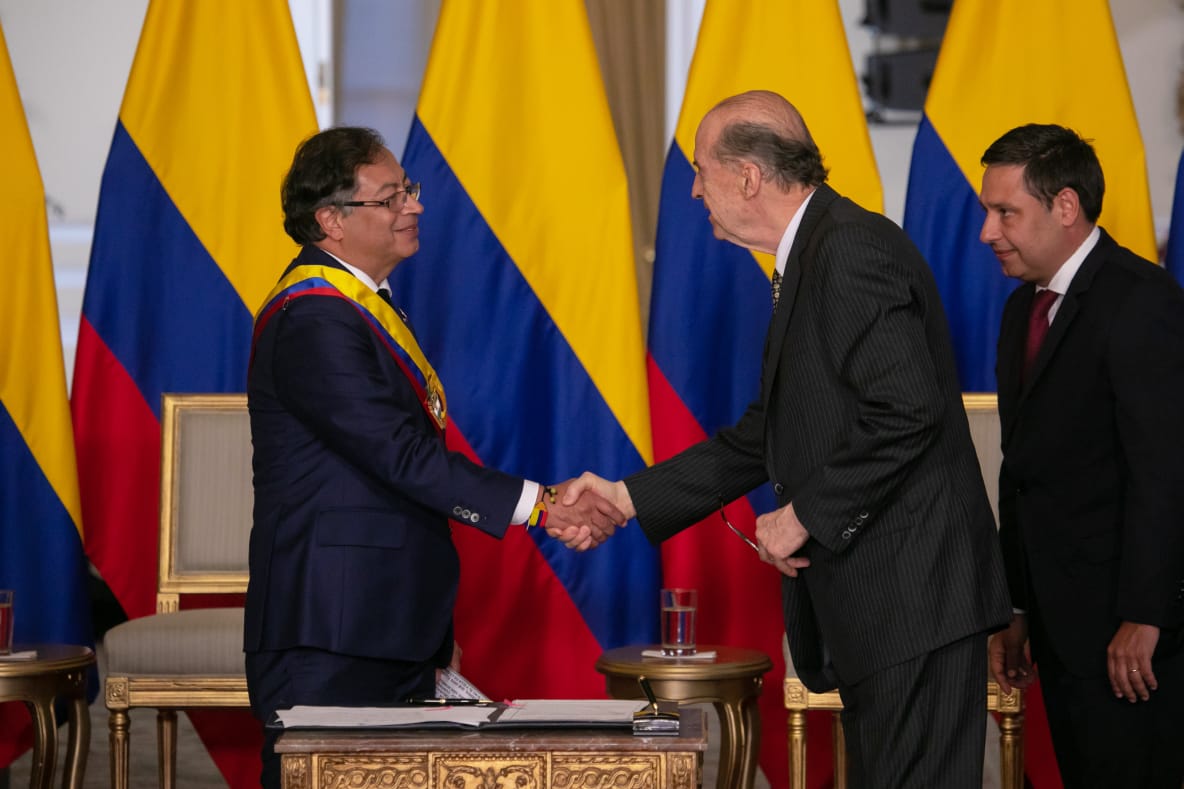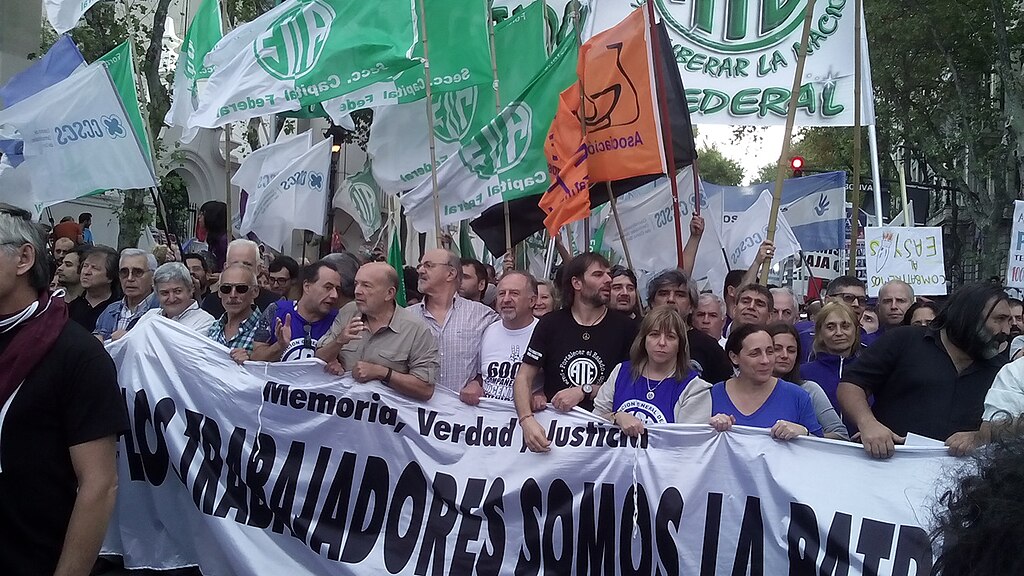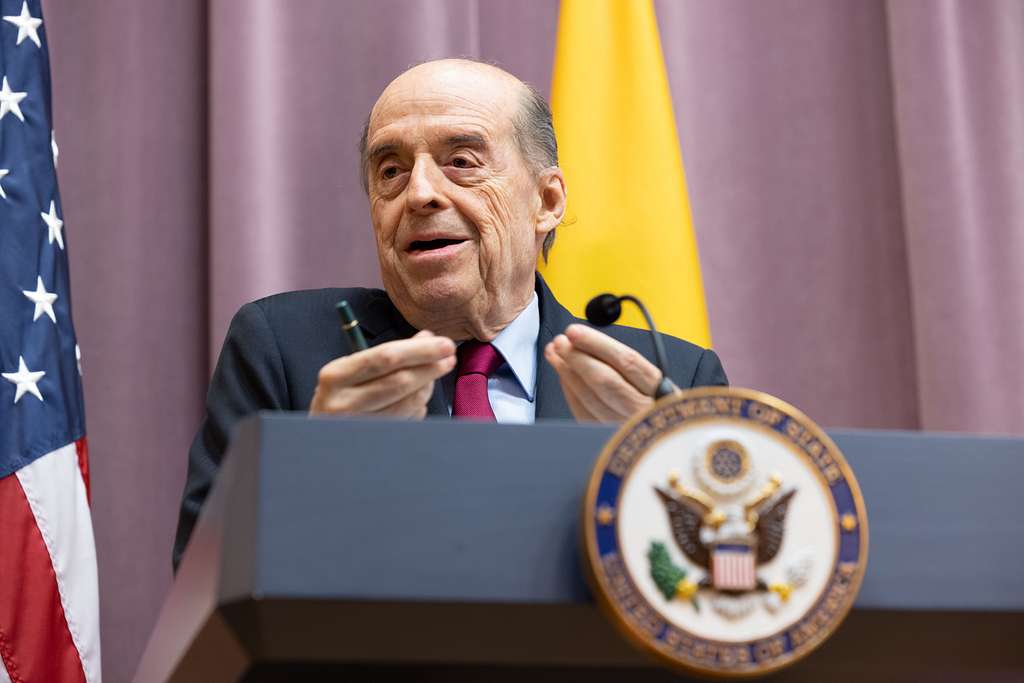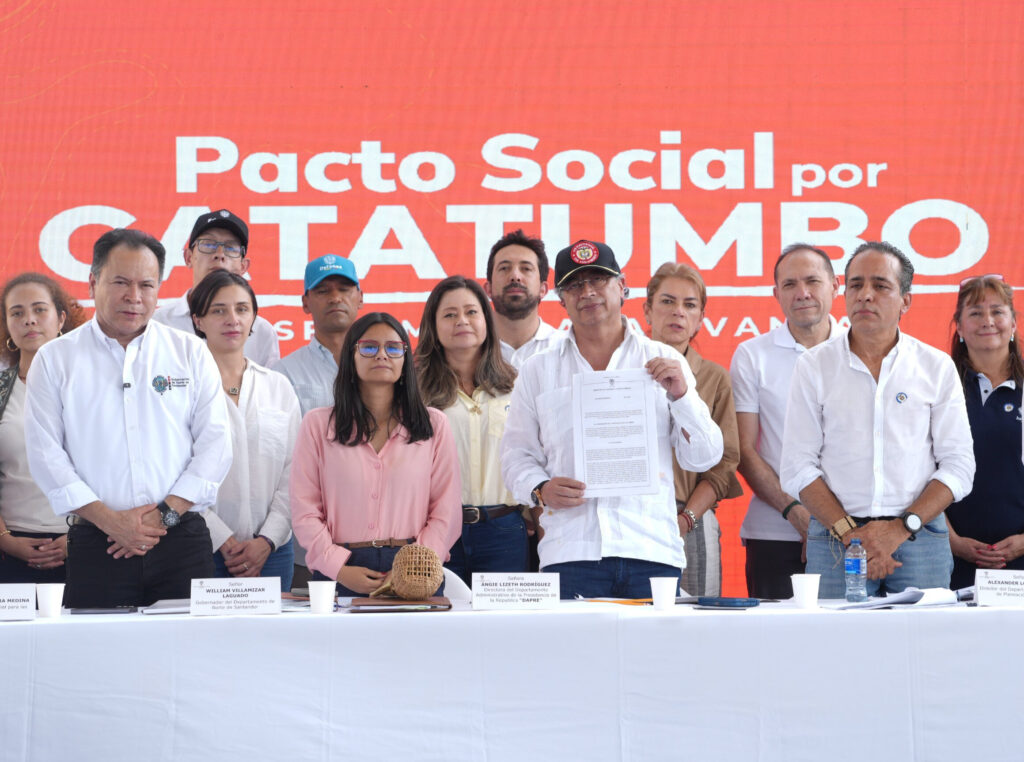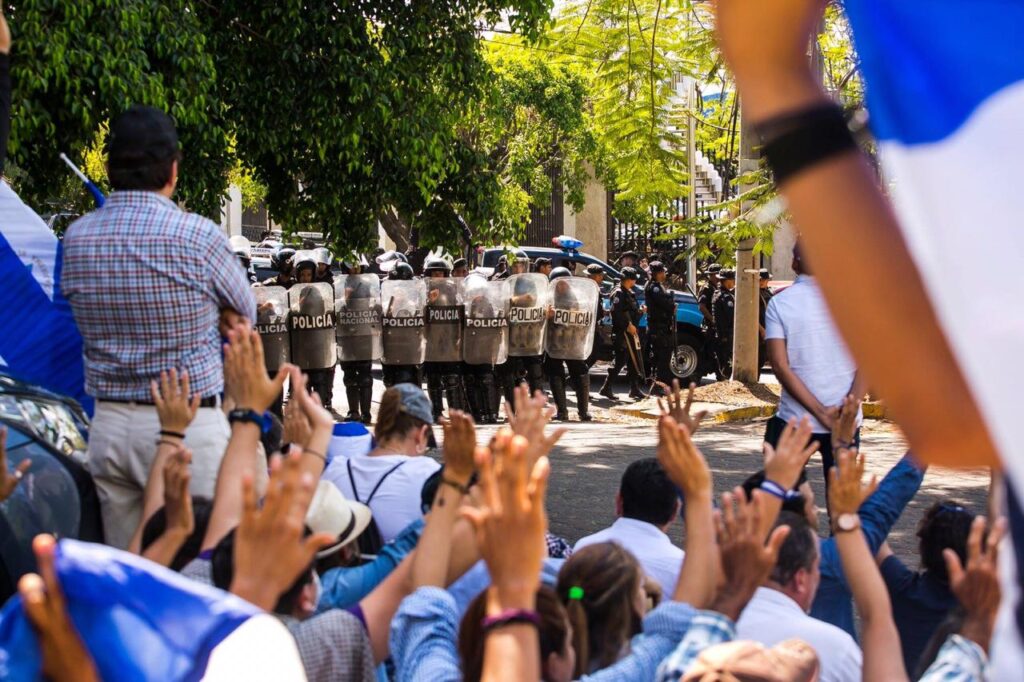Colombia’s former Minister of Foreign Relations, Álvaro Leyva, shared an open letter on April 23 through his personal social media accounts in which he denounced that president Gustavo Petro was addicted to drugs.
According to Leyva, he found out about the president’s alleged drug addiction during an official visit to Paris, during which Petro presumably “disappeared for two days […] as if the French intelligence service was incompetent and would be unaware of his whereabouts.”
“But what could I do? Surely, I fell short. I should have approached you, helped you, offered timely support. I carry with me the sorrow of not having tried to extend a hand. The truth is, you never recovered,” the former minister shared, referring to President Petro.
The letter also stressed that in spite of Leyva occupying a high-ranking ministerial position in Petro’s cabinet, it was hard to approach the commander-in-chief because it was Laura Sarabia, current Minister of Foreign Affairs and former Chief of Staff, who was in charge of the president’s agenda and, as per the letter, also attended to the president’s “personal needs.”
Additionally, Leyva wrote that he was aware of Armando Benedetti’s struggles with drug addiction prior to the current Interior Minister’s acknowledging this in a November 2024 interview with newspaper Semana, in which he shared that he was undergoing rehabilitation.
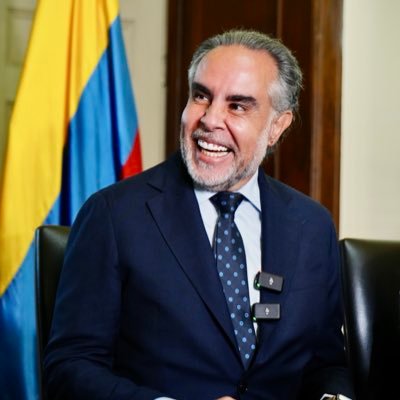
Image Credit: Armando Benedetti via X.

Image Credit: Laura Sarabia via X.
“For weeks I have been thinking about what to do so that you would hear my voice, your former minister, regarding concerns that have arisen in me as a result of the knowledge I have had for some time now, of situations that, in my view, have affected and continue to affect you personally, as Head of State and consequently, the entire country, Mr. President.”
So far, however, neither Sarabia nor Benedetti have issued statements about Leyva’s claims.
President Petro, however, retaliated against Leyva during a televised signing of two animal rights bills, stating that he was “addicted to love.”
“Why do you disappear for two days [they ask]! It’s not hard to imagine why, but the fact is that the writer [of the letter] can’t do that anymore,” President Petro stated, laughing.
“It became a sin for me to be with my family. Because several of my children and my mother live abroad, and due to the persecution we have suffered, I have very few opportunities to see them,” the head of state said through social media.

Image Source: Andrea Petro via X.
Similarly, the president’s eldest daughter, Andrea Petro, confirmed that the president became absent from his official duties in Paris to visit his family.
“In France, my father found something rare in Colombia: family time, privacy, calm. His favorite pastime was spending time with my daughters, to be a grandfather without distractions. Guilty of helping him disconnect a little? I’ll admit to that, but we were only seeking a peace that is not allowed over there,” Andrea Petro, who moved to France as a student in 2016, stated.
Responding to the drug addiction claims, Échele Cabeza (Use Your Head), a Colombian organization that promotes information about psychoactive substances to reduce the risks associated with their consumption, stated that sharing prejudiced messages like Leyva’s reproduces stigmatizing messages about drug addiction.
“Labeling someone as dysfunctional solely for using legal or illegal substances, and without a specialized diagnosis, reinforces a prohibitionist approach that stigmatizes, excludes, and harms. This not only reinforces stigma, but also perpetuates cultural violence,” Échele Cabeza stated.
A troublesome history
Previous claims about President Petro’s presumed struggle with drug addiction include that by journalist María Jimena Duzán, who in November 2023 published an open letter to the head of state through Cambio, a Colombian political magazine.
In the letter, Duzán explained that although she voted for the now-President in the 2022 elections, she had perceived a total lack of governance in Petro’s first year and a half in office, with notable absences that confused the country and public comments that fueled discursive violence.
“In trying to understand why you’ve become so entrenched, I came across a possible explanation: there are sources who assure me that the reason for your disappearances- which have become increasingly frequent and prolonged- may be that you’ve been hiding a problem with addiction. If this is true, you should be honest, first with yourself, and then with the country that elected you,” the journalist wrote at the time.
“Addiction is a health issue that affects many Colombians, and admitting to it is neither sinful nor a moral failing. It is not a defect. It is a disease that can be treated if addressed in time. Let yourself be treated, Mr. President- the country and your political project are at stake,” Duzán added.
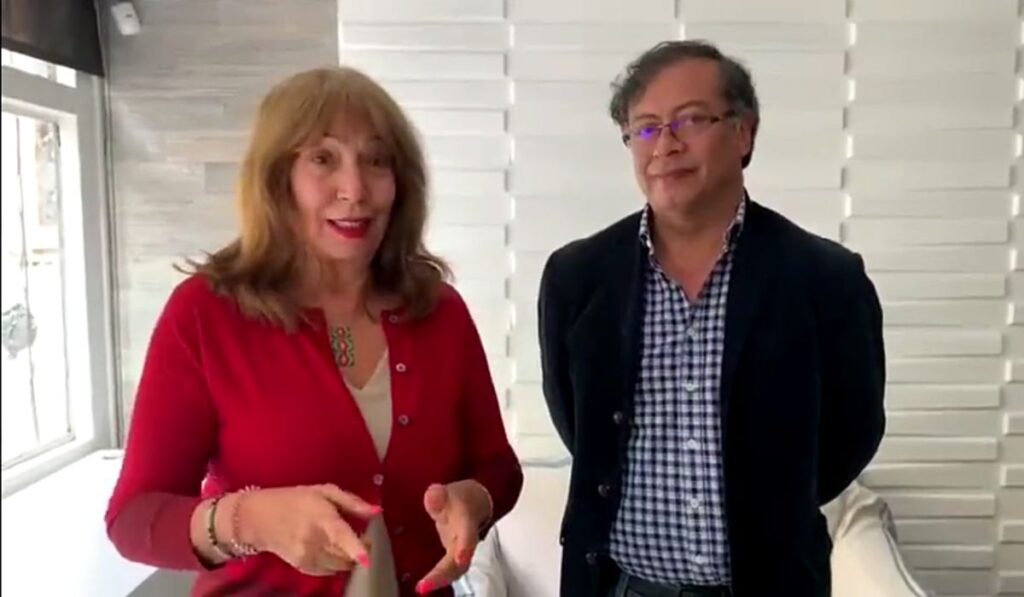
Image Source: María Jimena Duzán via X.
At the time, Petro responded by stating that the only addiction he had was “to coffee in the morning.”
Following Leyva’s recent letter, Duzán re-shared her letter on social media.
“A year and a half ago, I wrote this letter to the president. His response was that his only addiction was to coffee. At the time, Álvaro Leyva remained silent,” the journalist noted.
The future of Colombia’s presidency
Álvaro Leyva was originally a member of the Conservative Party, following in the footsteps of his father, Jorge Leyva, who was a congressman and Minister of Public Works in the early 1950s. The Leyva family was then exiled to the United States after Colombia’s coup d’état at the hands of General Gustavo Rojas Pinilla in 1953, according to Colombian newspaper La Silla Vacía.
Following the end of the dictatorship the family returned to Colombia, after which Álvaro began working with the Conservative Party, under the banner of whom his father ran for president in the 1958 and 1962 elections.
In 1982, Álvaro Leyva became a senator, after which he went on to become Minister of Mines and Energy, a member of the 1991 Constitutional Assembly, and a delegate in several peace processes with the M-19 guerrilla, to which President Petro belonged.
“At the time of my [ministerial] appointment, I didn’t know anything about your personal background- only aspects related to your political career. I had some information about your involvement with the M-19. The truth is, I had a very meaningful relationship with the entire leadership of that organization, but […] I never crossed paths with you. You were not among their front ranks,” Leyva’s April 23, 2025 letter, directed to Petro, reads.
Upon his presidential election in August 2022, Petro appointed Leyva as Minister of Foreign Affairs. In May 2024, however, Leyva resigned from the position amidst accusations of interference in passport issuers’ bidding processes. Ultimately, the former minister was banned from public office for 10 years by the General Attorney’s office, which found that Leyva had irregularly canceled the bidding process in 2023.
Regardless, Leyva’s recent declaration about the president’s supposed drug addiction could prompt Petro’s sacking from office. According to the Colombian Constitution, presidents can be ousted from their position via a Senate decision deeming them physically permanently incapable to uphold the duties of the presidency.
In addition, the Constitutional Court has determined that addiction to psychoactive substances is a mental illness which “places those who suffer from it in a state of psychological vulnerability.”
For this to happen, however, substantial proof needs to be presented before the Senate, proving President Petro’s alleged advanced addiction and physical inability. No investigation has been announced on this subject, and the next presidential elections are set for May 2026, in which Petro cannot be constitutionally reelected.
Featured image credit:
Image: President Gustavo Petro names Álvaro Leyva as Foreign Minister
Photographer: Cancillería Colombia
Source: https://www.cancilleria.gov.co/newsroom/news/presidente-gustavo-petro-posesiono-alvaro-leyva-ministro-relaciones-exteriores


